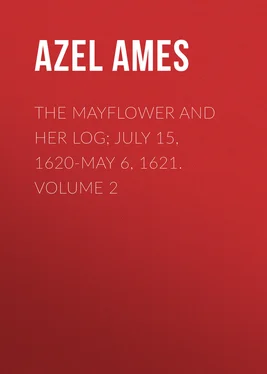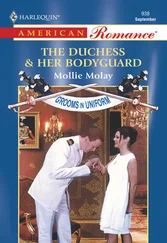Azel Ames - The Mayflower and Her Log; July 15, 1620-May 6, 1621. Volume 2
Здесь есть возможность читать онлайн «Azel Ames - The Mayflower and Her Log; July 15, 1620-May 6, 1621. Volume 2» — ознакомительный отрывок электронной книги совершенно бесплатно, а после прочтения отрывка купить полную версию. В некоторых случаях можно слушать аудио, скачать через торрент в формате fb2 и присутствует краткое содержание. Жанр: foreign_prose, История, foreign_edu, foreign_antique, на английском языке. Описание произведения, (предисловие) а так же отзывы посетителей доступны на портале библиотеки ЛибКат.
- Название:The Mayflower and Her Log; July 15, 1620-May 6, 1621. Volume 2
- Автор:
- Жанр:
- Год:неизвестен
- ISBN:нет данных
- Рейтинг книги:5 / 5. Голосов: 1
-
Избранное:Добавить в избранное
- Отзывы:
-
Ваша оценка:
- 100
- 1
- 2
- 3
- 4
- 5
The Mayflower and Her Log; July 15, 1620-May 6, 1621. Volume 2: краткое содержание, описание и аннотация
Предлагаем к чтению аннотацию, описание, краткое содержание или предисловие (зависит от того, что написал сам автор книги «The Mayflower and Her Log; July 15, 1620-May 6, 1621. Volume 2»). Если вы не нашли необходимую информацию о книге — напишите в комментариях, мы постараемся отыскать её.
The Mayflower and Her Log; July 15, 1620-May 6, 1621. Volume 2 — читать онлайн ознакомительный отрывок
Ниже представлен текст книги, разбитый по страницам. Система сохранения места последней прочитанной страницы, позволяет с удобством читать онлайн бесплатно книгу «The Mayflower and Her Log; July 15, 1620-May 6, 1621. Volume 2», без необходимости каждый раз заново искать на чём Вы остановились. Поставьте закладку, и сможете в любой момент перейти на страницу, на которой закончили чтение.
Интервал:
Закладка:
If the facts were indeed as stated by Smith,—whose knowledge of what he affirmed there is no reason to doubt,—there can be little question that the contract for the service of the MAY-FLOWER was signed by the entire number of the Adventurers on the one part. If so, its covenants would be equally binding upon each of them except as otherwise therein stipulated, or provided by the law of the realm. In such case, the charter-party of the MAY-FLOWER, with the autograph of each Merchant Adventurer appended, would constitute, if it could be found, one of the most interesting and valuable of historical documents. That it was not signed by any of the Leyden congregation—in any representative capacity—is well-nigh certain. Their contracts were with the Adventurers alone, and hence they were not directly concerned in the contracts of the latter, their "agents" being but co-workers with the Adventurers (under their partnership agreements), in finding shipping, collecting moneys, purchasing supplies, and in generally promoting the enterprise. That they were not signing-parties to this contract, in particular, is made very certain by the suggestion of Cushman's letter of Sunday, June 11, to the effect that he hoped that "our friends there [at Leyden] if they be quitted of the ship-hire [as then seemed certain, as the Adventurers would hire on general account] will be induced to venture [invest] the more." There had evidently been a grave fear on the part of the Leyden people that if they were ever to get away, they would have to hire the necessary ship themselves.
There is just the shadow of a doubt thrown upon the accuracy of Smith's statement as to the non-corporate status of the Adventurers, by the loose and unwieldy features which must thereby attach to their business transactions, to which it seems probable that merchants like Weston, Andrews, Beauchamp, Shirley, Pickering, Goffe, and others would object, unless the law at that time expressly limited and defined the rights and liabilities of members in such voluntary associations. Neither evidences of (primary) incorporation, or of such legal limitation, have, however, rewarded diligent search. There was evidently some more definite and corporate form of ownership in the properties and values of the Adventurers, arrived at later. A considerable reduction in the number of proprietors was effected before 1624—in most cases by the purchase of the interests of certain ones by their associates—for we find their holdings spoken of in that year as "sixteenths," and these shares to have sometimes been attached for their owners' debts. A letter of Shirley, Brewer et als., to Bradford, Allerton et als., dated London, April 7, 1624, says: "If it had not been apparently sold, Mr. Beauchamp, who is of the company also, unto whom he [Weston] oweth a great deal more, had long ago attached it (as he did other's 16ths)," etc. It is exceedingly difficult to reconcile these unquestionable facts with the equal certainty that, at the "Composition" of the Adventurers with the Planters in 1626, there were forty-two who signed as of the Adventurers. The weight, however, of evidence and of probability must be held to support the conclusion that in June, 1620, the organization was voluntary, and that the charter-party of the MAY-FLOWER was signed—" on the one part "—by each of the enrolled Adventurers engaged in the Leyden congregation's colonization scheme. Goodwin' alone pretends to any certain knowledge of the matter, but although a veracious usually reliable writer, he is not infallible, as already shown, and could hardly have had access to the original documents,—which alone, in this case, could be relied on to prove his assertion that "Shortly articles were signed by both parties, Weston acting for the Adventurers." Not a particle of confirmatory evidence has anywhere been found in Pilgrim or contemporaneous literature to warrant this statement, after exhaustive search, and it must hence, until sustained by proof, be regarded as a personal inference rather than a verity. If the facts were as appears, they permit the hope that a document of so much prima facie importance may have escaped destruction, and will yet be found among the private papers of some of the last survivors of the Adventurers, though with the acquisition of all their interests by the Pilgrim leaders such documents would seem, of right, to have become the property of the purchasers, and to have been transferred to the Plymouth planters.
This all-important and historic body—the company of Merchant Adventurers—is entitled to more than passing notice. Associated to "finance" the projected transplantation of the Leyden congregation of "Independents" to the "northern parts of Virginia," under such patronage and protection of the English government and its chartered Companies as they might be able to secure, they were no doubt primarily brought together by the efforts of one of their number, Thomas Weston, Esq., the London merchant previously named, though for some obscure reason Master John Pierce (also one of them) was their "recognized" representative in dealing with the (London) Virginia Company and the Council for the Affairs of New England, in regard to their Patents.
Bradford states that Weston "was well acquainted with some of them the Leyden leaders and a furtherer of them in their former proceedings," and this fact is more than once referred to as ground for their gratitude and generosity toward him, though where, or in what way, his friendship had been exercised, cannot be learned,—perhaps in the difficulties attending their escape from "the north country" to Holland. It was doubtless largely on this account, that his confident assurances of all needed aid in their plans for America were so relied upon; that he was so long and so fully trusted; and that his abominable treachery and later abuse were so patiently borne.
We are indebted to the celebrated navigator, Captain John Smith, of Virginia fame, always the friend of the New England colonists, for most of what we know of the organization and purposes of this Company. His ample statement, worthy of repetition here, recites, that "the Adventurers which raised the stock to begin and supply this Plantation, were about seventy: some, Gentlemen; some, Merchants; some, handicraftsmen; some adventuring great sums, some, small; as their estates and affections served . . . . These dwell most about London. They are not a corporation but knit together, by a voluntary combination, in a Society, with out constraint or penalty; aiming to do good and to plant Religion." Their organization, officers, and rules of conduct, as given by Smith, have already been quoted. It is to be feared from the conduct of such men as Weston, Pierce, Andrews, Shirley, Thornell, Greene, Pickering, Alden, and others, that profitable investment, rather than desire "to do good and to plant Religion," was their chief interest. That the higher motives mentioned by Smith governed such tried and steadfast souls as Bass, Brewer, Collier, Fletcher, Goffe, Hatherly, Ling, Mullens, Pocock, Thomas, and a few others, there can be no doubt.
Конец ознакомительного фрагмента.
Текст предоставлен ООО «ЛитРес».
Прочитайте эту книгу целиком, на ЛитРес.
Безопасно оплатить книгу можно банковской картой Visa, MasterCard, Maestro, со счета мобильного телефона, с платежного терминала, в салоне МТС или Связной, через PayPal, WebMoney, Яндекс.Деньги, QIWI Кошелек, бонусными картами или другим удобным Вам способом.
Интервал:
Закладка:
Похожие книги на «The Mayflower and Her Log; July 15, 1620-May 6, 1621. Volume 2»
Представляем Вашему вниманию похожие книги на «The Mayflower and Her Log; July 15, 1620-May 6, 1621. Volume 2» списком для выбора. Мы отобрали схожую по названию и смыслу литературу в надежде предоставить читателям больше вариантов отыскать новые, интересные, ещё непрочитанные произведения.
Обсуждение, отзывы о книге «The Mayflower and Her Log; July 15, 1620-May 6, 1621. Volume 2» и просто собственные мнения читателей. Оставьте ваши комментарии, напишите, что Вы думаете о произведении, его смысле или главных героях. Укажите что конкретно понравилось, а что нет, и почему Вы так считаете.












